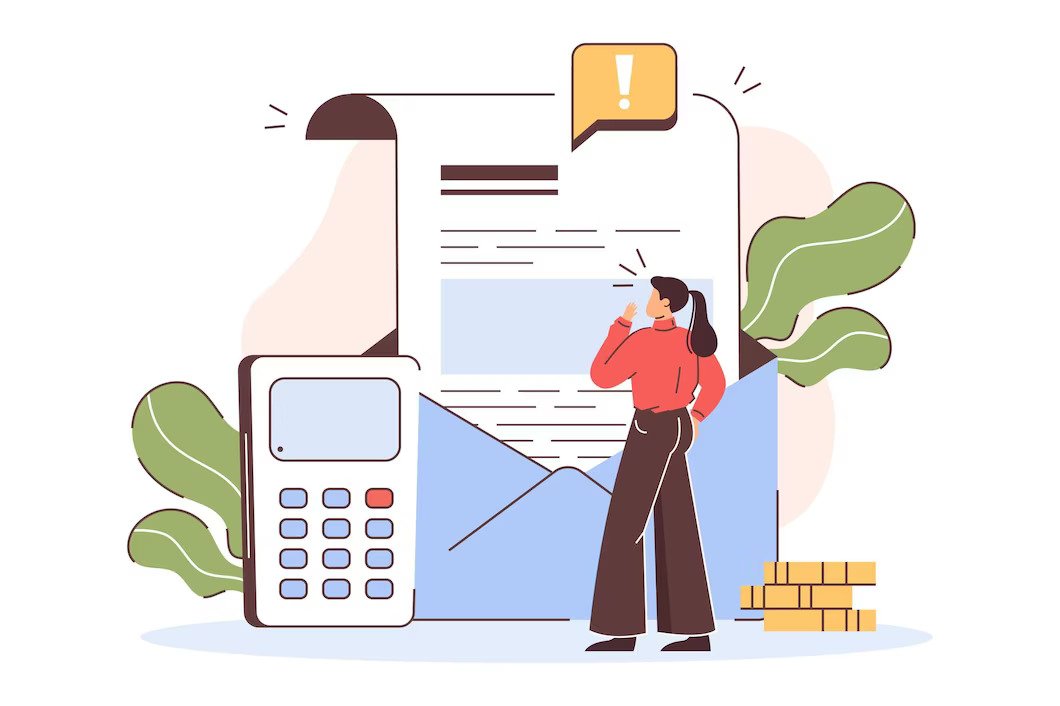In today’s fast-paced business environment, one crucial aspect often overlooked by Nigerian entrepreneurs is proper invoicing. Yet, this seemingly simple administrative task can dramatically impact your cash flow, client relationships, and overall business success. Whether you’re running a small startup in Lagos or managing a growing enterprise in Abuja, mastering the art of invoicing is non-negotiable for sustainable growth.
The Hidden Power of Professional Invoicing
Picture this: You’ve delivered exceptional service to a client, completed the project on time, and exceeded expectations. Now comes the part many business owners dread—getting paid. Without a proper invoicing system, you might find yourself chasing payments, dealing with disputes, or worse, watching your cash flow dwindle while operational costs continue to mount.
For Nigerian businesses facing unique challenges like fluctuating exchange rates, multiple payment platforms, and varying client expectations, implementing a robust invoicing process isn’t just good practice—it’s essential for survival.
What Exactly Is Invoicing and Why Does It Matter?
At its core, an invoice is a commercial document issued by a seller to a buyer, indicating the products, quantities, and agreed prices for products or services the seller has provided the buyer. But in today’s business landscape, especially in emerging African markets, invoicing represents much more.
More Than Just a Request for Payment
An invoice serves multiple critical functions in your business ecosystem:
- Legal Documentation: In Nigeria’s business environment, where verbal agreements sometimes supersede written contracts, invoices serve as crucial legal documents that validate transactions and can be used as evidence in case of disputes.
- Financial Record-Keeping: For tax compliance with the Federal Inland Revenue Service (FIRS) and other regulatory bodies, proper invoicing creates an audit trail of your business income.
- Cash Flow Management: Timely and accurate invoicing directly impacts when and how much money flows into your business accounts—a critical factor for Nigerian startups often operating with limited capital.
- Professional Image: A well-designed, prompt invoice signals professionalism and can significantly enhance your brand perception among clients, many of whom are increasingly demanding international standards of service.
- Business Intelligence: Modern invoicing systems collect valuable data about your sales patterns, client payment behaviors, and revenue streams—insights that can drive strategic business decisions.
For the 41.5 million micro, small, and medium enterprises (MSMEs) that form the backbone of Nigeria’s economy, mastering invoicing can mean the difference between growth and stagnation.
The Real Cost of Poor Invoicing Practices for Nigerian Businesses
Many Nigerian entrepreneurs don’t realize how much inadequate invoicing practices cost them until it’s too late. Consider these sobering realities:
- Late Payments: Studies show that businesses with inconsistent invoicing procedures wait an average of 45-60 days for payment in Nigeria, compared to 15-30 days for those with streamlined systems.
- Revenue Leakage: Without proper invoicing, businesses often forget to bill for additional services, expenses, or hourly overages—resulting in up to 5-10% revenue loss annually.
- Administrative Burden: Manual invoicing consumes approximately 10 hours per week for the average small business owner—time that could be better spent on core business activities.
- Tax Complications: Improper invoicing leads to tax filing challenges, potentially resulting in penalties from FIRS or state tax authorities.
- Client Disputes: Unclear or delayed invoices frequently lead to payment disputes, damaging valuable client relationships that are often built on trust and personal connections in the Nigerian business culture.
Invoice Details: Information Required On An Invoice
For Nigerian businesses looking to improve their invoicing process, understanding the must-have elements of a professional invoice is the first step. Every effective invoice should include:
- Your Business Information: Complete business name, address, phone number, email, and if applicable, your company registration number with the Corporate Affairs Commission (CAC).
- Client Details: The recipient’s name, business name, contact information, and address.
- Unique Invoice Number: A sequential identifier for easy tracking and reference.
- Issue Date and Payment Due Date: Clearly state when the invoice was created and when payment is expected.
- Itemized Services or Products: Detailed breakdown of all items being billed, including:
- Description of services/products
- Quantity or hours
- Rate or price per unit
- Subtotal for each item
- Total Amount Due: The final amount including any applicable taxes like VAT (7.5% in Nigeria).
- Payment Terms and Methods: Clearly outline accepted payment methods relevant to the Nigerian market such as bank transfers, USSD payments, mobile money options (like Paga or OPay), or international methods for foreign clients.
- Additional Notes: Any special terms, discount information, or reference numbers the client needs.
- Late Payment Policies: Any penalties or interest charges that will apply for delayed payments.
- Thank You Note: A simple expression of gratitude can improve client relations and payment behavior.
For Nigerian businesses dealing with both local and international clients, having these elements properly organized can significantly reduce payment delays and confusion.
Read Also: Choosing the Right Accounting Software for Your Business
Traditional vs. Modern Invoicing Methods
The Old Way: Manual Invoicing
Traditionally, Nigerian businesses have relied on manual invoicing methods, including:
- Paper Invoices: Physical documents either hand-delivered or mailed to clients
- Basic Word or Excel Templates: Simple digital documents without automation
- Email Attachments: PDF or Word documents sent via email without tracking capabilities
These methods present several challenges in today’s business environment:
- Time-consuming creation and distribution
- Difficult to track payment status
- Prone to human errors in calculations
- Limited record-keeping capabilities
- Challenges with multiple currency management (crucial for businesses dealing with international clients)
- Poor integration with accounting systems
The New Way: Digital Invoicing Solutions
Modern Nigerian businesses are increasingly adopting digital invoicing solutions that offer:
- Automation: Recurring invoices sent automatically based on preset schedules
- Real-time Tracking: Instant notifications when invoices are viewed or paid
- Multiple Currency Support: Essential for businesses dealing with clients across Africa and beyond
- Payment Integration: Direct links to popular Nigerian payment gateways like Flutterwave, Paystack, and bank transfer systems
- Cloud Storage: Secure, accessible invoice history from anywhere with internet access
- Customization: Professional templates with company branding
- Mobile Accessibility: Create and send invoices from smartphones (crucial in Nigeria’s mobile-first market)
For Nigerian startups operating with limited resources and personnel, these digital advantages translate to tangible business benefits.
The Transformative Impact of Invoicing Software for Nigerian Startups
For Nigerian startups and SMEs, implementing dedicated invoicing software like ProInvoice can revolutionize financial operations. Here’s how:
1. Dramatic Time Savings
The average Nigerian business owner spends approximately 10-15 hours weekly on financial administrative tasks. Invoicing software can reduce this to just 1-2 hours, freeing up valuable time to focus on business growth and client relationships.
2. Accelerated Payment Cycles
Businesses using automated invoicing software report receiving payments 40-60% faster than those using manual methods. For Nigerian startups operating with tight cash flow, this acceleration can be transformative.
3. Enhanced Professionalism
In competitive markets like Lagos, Abuja, or Port Harcourt, the professionalism projected by your invoicing can significantly impact client perception. A well-branded, error-free invoice generated by quality software elevates your business image.
4. Improved Financial Oversight
With comprehensive dashboards showing outstanding invoices, payment histories, and client payment patterns, business owners gain invaluable insights into their financial health—critical for making informed decisions in Nigeria’s sometimes volatile business environment.
5. Multi-currency Management
For Nigerian businesses working with clients across Africa or internationally, automated handling of different currencies and exchange rates eliminates costly errors and simplifies accounting.
6. Seamless Subscription Management
For service-based businesses offering subscription plans, dedicated invoicing software automates recurring billing—ensuring consistent revenue streams without manual intervention.
7. Tax Compliance Made Simple
With Nigeria’s tax regulations evolving rapidly, invoicing software that automatically calculates VAT and generates compliant documentation saves both time and potential legal headaches.
Why ProInvoice Stands Out for Nigerian Businesses
While several invoicing solutions exist in the market, ProInvoice has positioned itself as particularly well-suited for the Nigerian business environment. Here’s why:
Tailored for the African Context
Unlike generic international solutions, ProInvoice understands the unique challenges of doing business in Nigeria and across Africa:
- Support for Nigerian payment gateways including Paystack, Flutterwave, and direct bank integrations
- Templates compliant with Nigerian tax regulations
- Multi-currency support with accurate exchange rate management
- Offline functionality to accommodate occasional internet connectivity issues
Comprehensive Features Beyond Basic Invoicing
ProInvoice offers a complete financial management ecosystem:
- Expense Tracking: Monitor business expenses against revenue
- Client Management: Maintain detailed client histories and payment records
- Financial Reporting: Generate comprehensive reports for business planning and tax filing
- Subscription Management: Automate recurring billing for retainer clients
- Mobile App Access: Manage invoicing on-the-go, essential in Nigeria’s mobile-first economy
- Team Collaboration Tools: Allow designated team members appropriate access levels
Cost-Effective for Growing Businesses
For Nigerian startups conscious of operational costs, ProInvoice offers:
- Flexible pricing plans that grow with your business
- No hidden charges or expensive onboarding fees
- Value that far exceeds the investment through time savings and faster payments
Practical Steps to Implement Professional Invoicing in Your Nigerian Business
Ready to transform your invoicing process? Follow these implementation steps:
1. Audit Your Current Process
Before making changes, understand your current invoicing workflow:
- How many invoices do you send monthly?
- What is your average time-to-payment?
- What payment methods do your clients prefer?
- What are your most common invoicing challenges?
2. Select the Right Invoicing Software
When evaluating options like ProInvoice, consider:
- Compatibility with Nigerian tax requirements
- Available payment integrations
- Ease of use for your team
- Mobile accessibility
- Customer support availability
- Pricing structure
3. Set Up Your Invoice Template
Create a professional template that includes:
- Your business logo and branding
- Clear payment terms relevant to Nigerian business customs
- All required legal information including tax identification numbers
Read Also: Can I create a Simple invoice template in Word?
4. Establish Clear Payment Terms
Develop standard payment terms that work for your business:
- Consider offering early payment discounts (popular with Nigerian clients)
- Clearly state late payment penalties
- Define acceptable payment windows (15, 30, or 45 days)
5. Train Your Team
Ensure everyone involved in the billing process understands:
- How to create and send invoices
- How to track payment status
- How to handle common client questions
- When to escalate payment issues
6. Communicate Changes to Clients
When upgrading your invoicing system:
- Notify clients in advance
- Highlight benefits they’ll experience (easier payment options, clearer documentation)
- Provide contact information for questions
Best Practices for Nigerian Businesses
To maximize the effectiveness of your invoicing system, follow these best practices:
1. Invoice Promptly
Send invoices immediately after product delivery or service completion. In the Nigerian business context where relationships matter, prompt invoicing signals professionalism without seeming overly aggressive about payment.
2. Offer Multiple Payment Options
The Nigerian payment landscape is diverse. Offer options including:
- Bank transfers (still the preferred method for many Nigerian businesses)
- Mobile money services
- USSD payments
- Card payments
- International options for foreign clients
3. Follow Up Strategically
Develop a systematic approach to payment follow-ups:
- Send friendly reminders 3-5 days before due dates
- Follow up within 24-48 hours after a missed payment
- Maintain a professional but firm tone in communications
4. Leverage Data for Decision-Making
Use reports from your invoicing software to:
- Identify consistently late-paying clients
- Recognize seasonal payment patterns
- Adjust cash flow projections based on actual payment behaviors
- Make informed decisions about extending credit to clients
The Future of Invoicing for Nigerian Businesses
As Nigeria continues its digital transformation, invoicing practices will evolve further:
Blockchain Integration
Emerging technologies like blockchain are beginning to impact invoicing through:
- Smart contracts that automatically release payments when conditions are met
- Enhanced security for financial transactions
- Improved transparency in business dealings
Artificial Intelligence
AI-powered features are starting to appear in advanced invoicing systems:
- Prediction of client payment behaviors
- Automated follow-up communications
- Anomaly detection for unusual transactions
Deep ERP Integration
For growing Nigerian businesses, invoicing is increasingly becoming part of comprehensive enterprise resource planning systems that connect:
- Inventory management
- Customer relationship management
- Human resources
- Comprehensive accounting
By staying ahead of these trends, forward-thinking Nigerian businesses can position themselves for continued growth and operational excellence.
Conclusion: Invoicing as a Strategic Business Function
For Nigerian startups and established businesses alike, invoicing should be viewed not as a mere administrative task but as a strategic business function that directly impacts:
- Cash flow health
- Client relationships
- Business reputation
- Financial compliance
- Decision-making capabilities
By implementing professional invoicing software like ProInvoice, Nigerian businesses can transform a traditional pain point into a competitive advantage. In today’s challenging economic environment, the businesses that master the fundamentals—including efficient, professional invoicing—are those positioned to thrive.
Whether you’re a solo entrepreneur in Enugu, a tech startup in Yaba, or a consulting firm in Kaduna, your approach to invoicing can be the difference between struggling with cash flow and enjoying the stability that comes with predictable, timely payments.
The question isn’t whether your Nigerian business can afford to implement professional invoicing software—it’s whether you can afford not to.Ready to transform your invoicing process? Visit ProInvoice.co to learn more about how our solutions are specifically designed for Nigerian and African businesses looking to optimize their financial operations.













